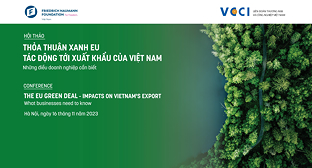Thailand is considering implementing protective tariffs on imports from China
19/04/2024 09:50

Thai Government Considers Imposing VAT on Chinese Goods
The Thai government is contemplating enforcing a seven percent value-added tax on Chinese products priced below 1,500 baht (US$40) that are funneled through Thailand‘s free trade zones to safeguard local businesses affected by an influx of inexpensive imports. Presently, goods under the 1,500 baht value are exempt from duties and VAT.
Impact of Chinese Imports on Local Industry
The Federation of Thai Industries has asserted that Chinese imports have led local manufacturers to reduce production by approximately 50 percent. Moreover, data from the Bank of Thailand shows that imported consumer goods comprised 24 percent of total imported goods in the first quarter of 2023, with 9.1 percent originating from China.
Implications on Thailand-China Relations
The introduction of tariffs on Chinese imports could potentially affect bilateral relations, given that China is Thailand’s largest trade partner. With bilateral trade hitting US$135 billion in 2023, Chinese investment and technology transfer have greatly benefited Thailand’s industrial growth, especially in its pursuit to become a regional EV hub.
Additionally, Thailand heavily relies on Chinese tourism revenue, with Chinese tourists constituting the largest group of visitors prior to the pandemic, making up about a quarter of the 40 million arrivals in 2019.
Protecting SMEs is vital for Thailand’s economy
For Thailand, protecting its SMEs and boosting their economic value will be vital for the country’s GDP growth. SMEs contribute approximately 35.2 percent of Thailand’s GDP, account for 99 percent of all businesses, and employ 70 percent of the country’s workforce – thus demonstrating their significant economic impact and underscoring their importance in driving overall economic growth and development in the country. The government is aiming to increase the economic contribution of SMEs to 40 percent of GDP by 2027.
However, despite their contribution, their participation in global value chains and international trade remains limited. Thai SMEs face significant barriers to growth, such as access to financing, as well as business management capabilities needed to expand.
Source:Thailand Business
Các tin khác
- Exports face challenges despite enjoying robust growth (26/04/2024)
- Vietnam ranks fifth among aquatic product suppliers for Singapore (26/04/2024)
- Some firms likely to close due to higher anti-dumping tariff on plywood products in S Korea (26/04/2024)
- Foreign businesses increasingly seek export sources in Vietnam (26/04/2024)
- Japan's investigation into China's graphite electrodes to 'affect regional cooperation' (26/04/2024)
 Home
Home
 About Us
About Us




















